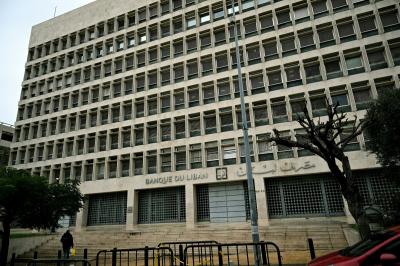In a country where workers' rights desperately need firm protection, Lebanon’s labor justice system has all but collapsed—over the equivalent of a single U.S. dollar. What was once envisioned by lawmakers as a semi-consensual dispute resolution mechanism between employees and employers has now ground to a halt, stripping over 1.6 million Lebanese workers of their only legal recourse in labor disputes.
Lebanon’s labor arbitration councils—intended to resolve individual employment disputes—have ceased functioning entirely since early 2023. This comes amid an escalation of labor rights violations including arbitrary dismissals, wage cuts, and the erosion of acquired rights. Compounding the crisis, collective labor dispute courts have been inactive since 2019.
These councils are composed of four members: a representative of the workers, one of the employers, a government commissioner, and a judge. Despite being legally mandated as a specialized body with sole authority over labor cases—including wage disputes, dismissals, and issues related to labor law and social security—they have long been hampered by legislative shortcomings. Among the most striking is the lack of required legal or technical qualifications for council members—some reportedly have never read the labor code. Even at their best, these councils took years to issue rulings in cases meant to be resolved within three months.
A Crisis Triggered by Devaluation
In early 2023, government commissioners went on strike demanding a raise in session attendance stipends. Their compensation had remained at 100,000 Lebanese pounds per session—worth $66 before the 2019 financial crash, but now equivalent to just one dollar.
Despite raising compensation for members of other public committees twentyfold in 2024, the previous government ignored the commissioners’ demands. Meanwhile, the General Confederation of Lebanese Workers remained conspicuously silent, while employers—some observers say—were quietly satisfied with the situation.
“A Fix Costs Less Than $8,000 a Month”
“The issue isn’t just about stipends,” explains Dr. Ahmad Dirani, Executive Director of the Lebanese Observatory for Workers and Employees’ Rights. “It’s about a deep-rooted disregard for workers’ rights.” He estimates the entire cost of reactivating these councils would be modest: around 720 million LBP per month (roughly $8,000) to fairly compensate the 60 total members involved, including judges.
“Can we really justify paralyzing an entire labor justice system—tasked with handling thousands of employment-related cases—for a sum as small as $8,000 a month?” Dirani asks. “The current government can and must issue a decree to adjust these stipends.”
More Than Just Money: A System Needing Reform
Even if councils resume operation soon, that alone won’t guarantee fair or timely justice for workers. Legal adviser and union consultant Issam Ridan highlights systemic issues: failure to treat labor disputes as urgent, the absence of criteria for appointing qualified council members, lack of judicial oversight, overburdened and part-time judges, and inadequate court infrastructure and budgets.
To address these gaps, the Observatory has proposed a set of legal and administrative reforms drafted by Judge Mazen Assi and attorney Hassan Bazzi. Key recommendations include:
- Revising legal procedures so that labor arbitration councils are independent from civil court processes.
- Introducing standardized complaint forms for workers and employers.
- Making labor inspectors accountable to the presiding labor judge for the duration of their assignments.
- Dividing labor cases into uncontested and contested categories to speed up decisions.
- Requiring detailed judicial reasoning in rulings to improve efficiency.
- Raising minimum and maximum severance compensation to six and twenty months, respectively—or providing alternative employment.
- Setting death compensation at a minimum of one year’s wages and a maximum of three.
- Holding employers liable for workplace accidents until full recovery and wage reinstatement.
- Allowing workers to sue for damages if the employer’s negligence contributed to an accident, recognizing such breaches as criminal.
12,000 Cases in Limbo
The consequences of the labor councils’ paralysis are staggering. According to a study by The Legal Agenda, over 12,000 labor complaints were filed in Beirut and Mount Lebanon between 2017 and 2023 alone. Over 70% of those remain unresolved—an indictment of both the system’s dysfunction and declining public trust in labor justice.
Reviving Collective Labor Dispute Mechanisms
Beyond individual claims, Lebanon's outdated collective labor dispute system also needs urgent reform. Under current law, all such disputes fall under a single judicial body within the Ministry of Labor—a setup fraught with obstacles that stifle effective dialogue between workers and employers.
The Observatory is calling for the immediate appointment of the long-vacant Collective Labor Dispute Arbitration Committee and the creation of at least two more such bodies—one each in Mount Lebanon and the North, ideally one per governorate.
Finally, Lebanon must align with international labor standards—especially ILO Convention 98 on the right to organize and collective bargaining, which it has already ratified.
In a country facing the highest unemployment in its history and record levels of emigration, restoring labor justice is no longer optional—it’s a necessity. And all it might take is one dollar turning into a fair wage for those tasked with keeping the wheels of justice turning.
Please post your comments on:
[email protected]
 Politics
Politics













